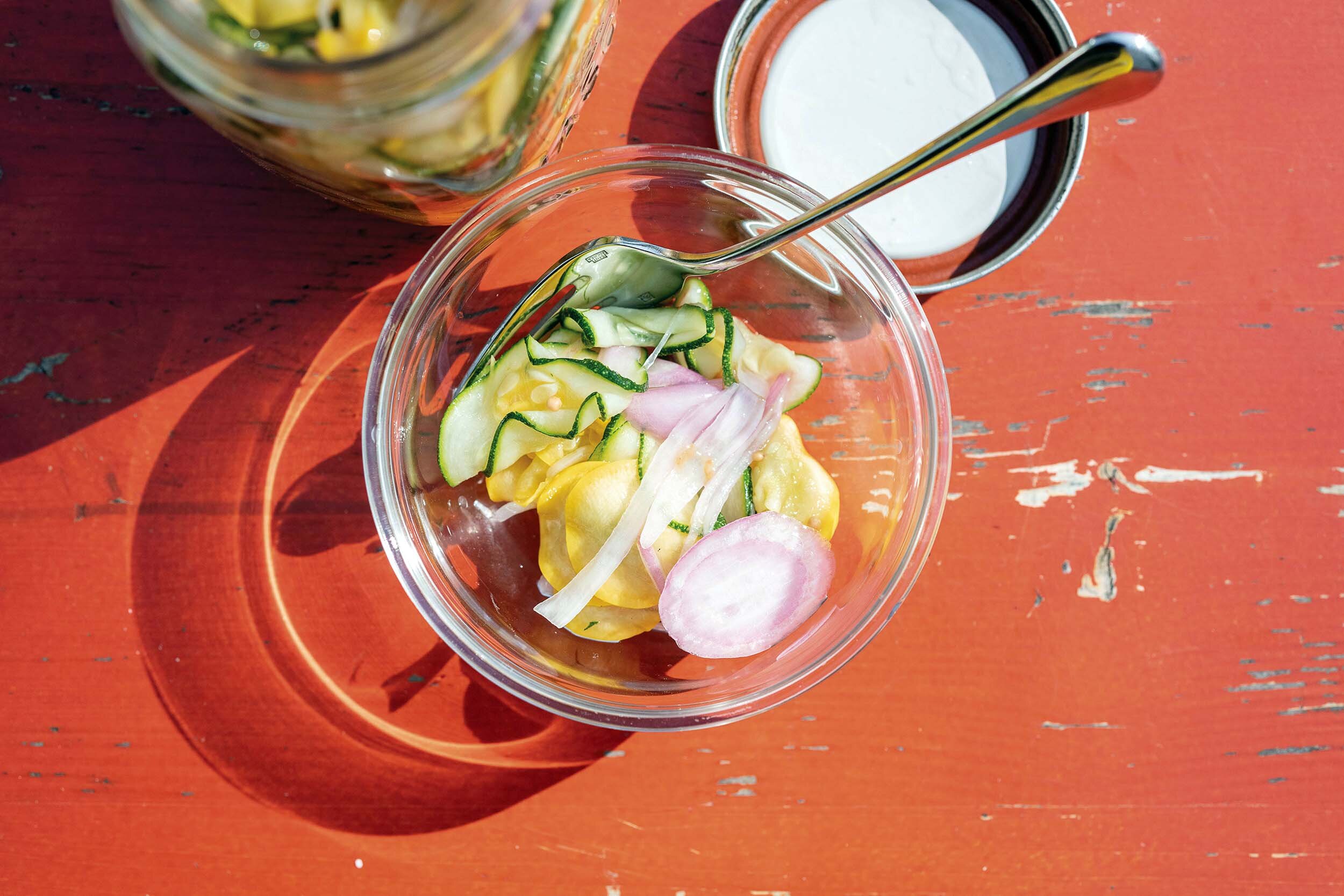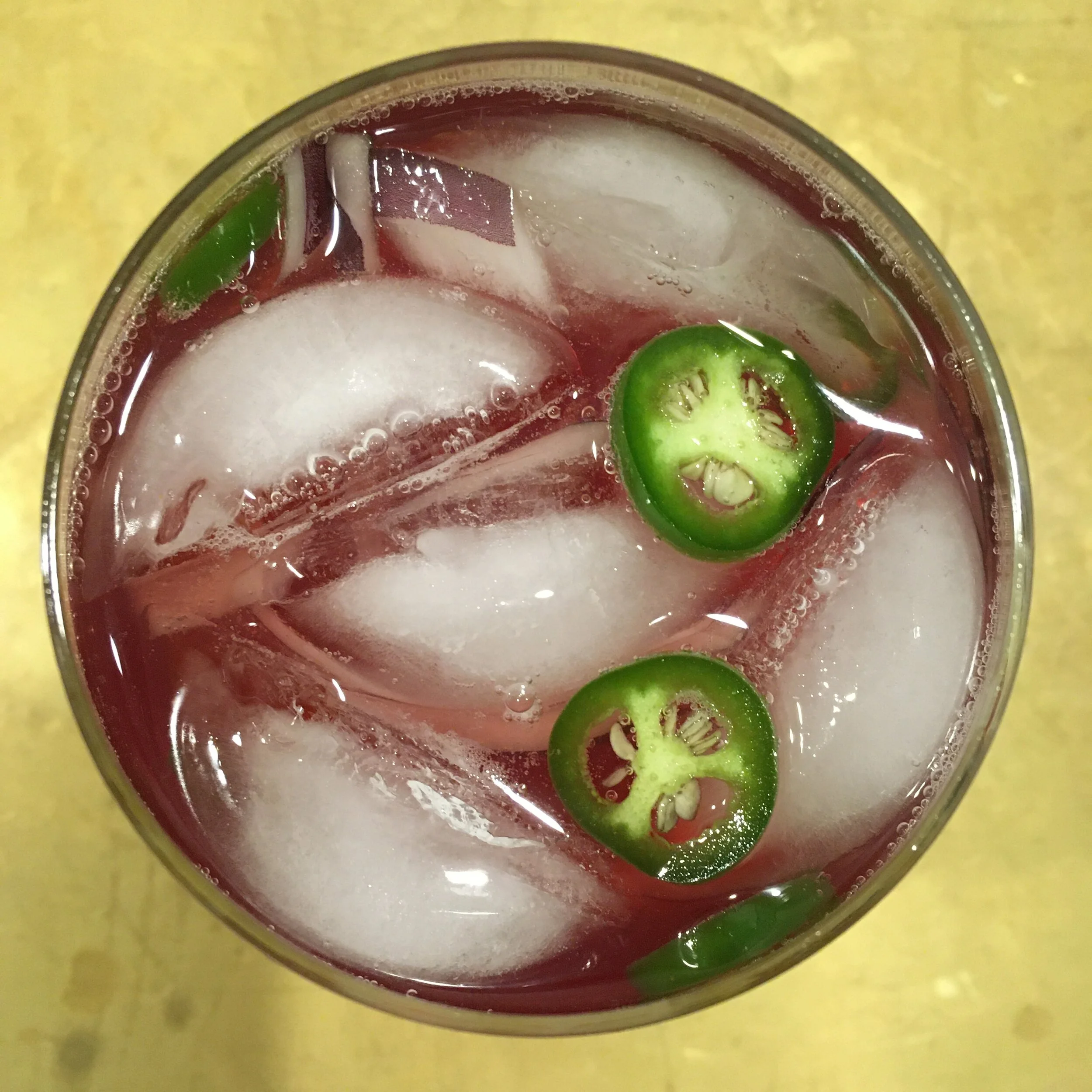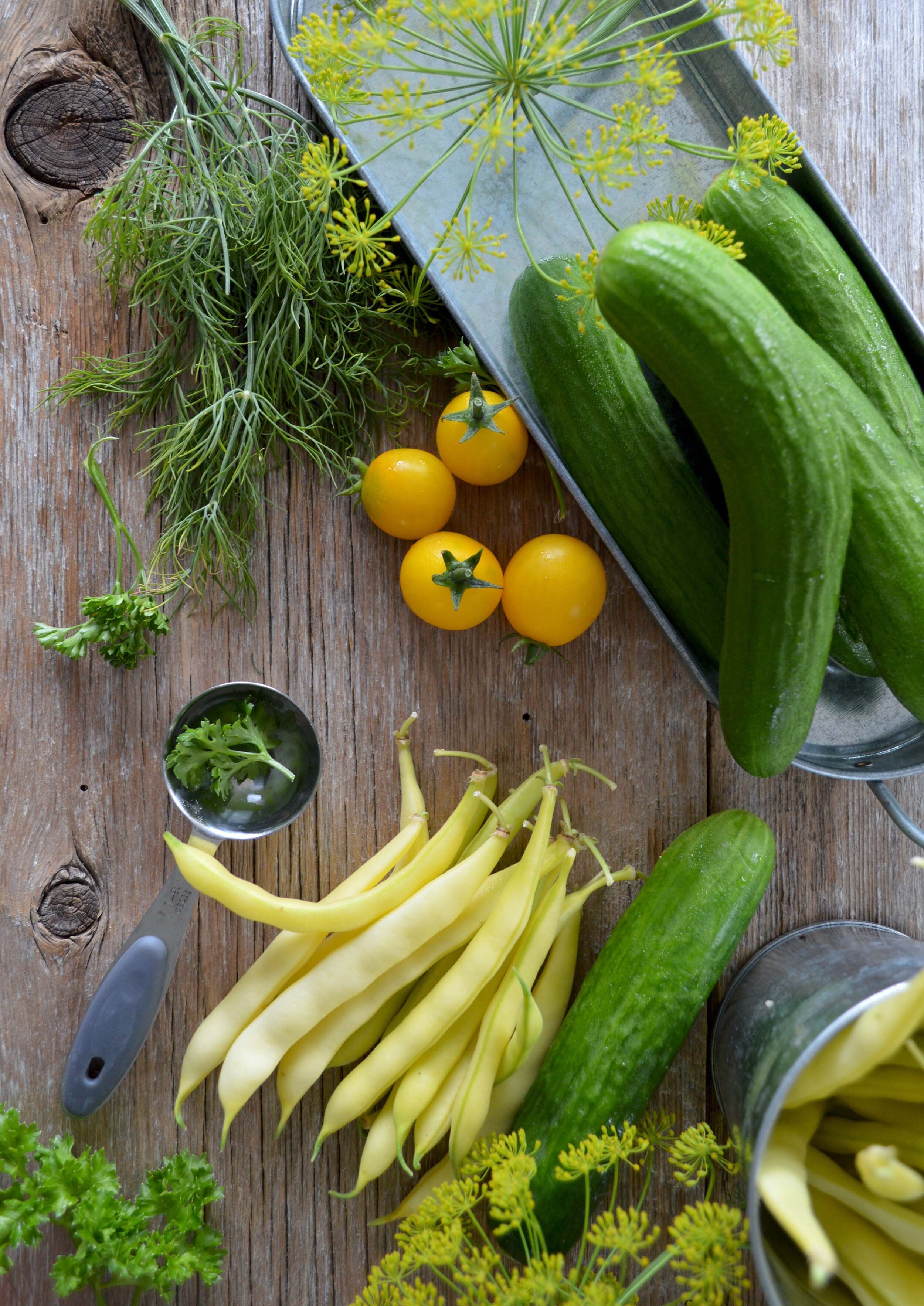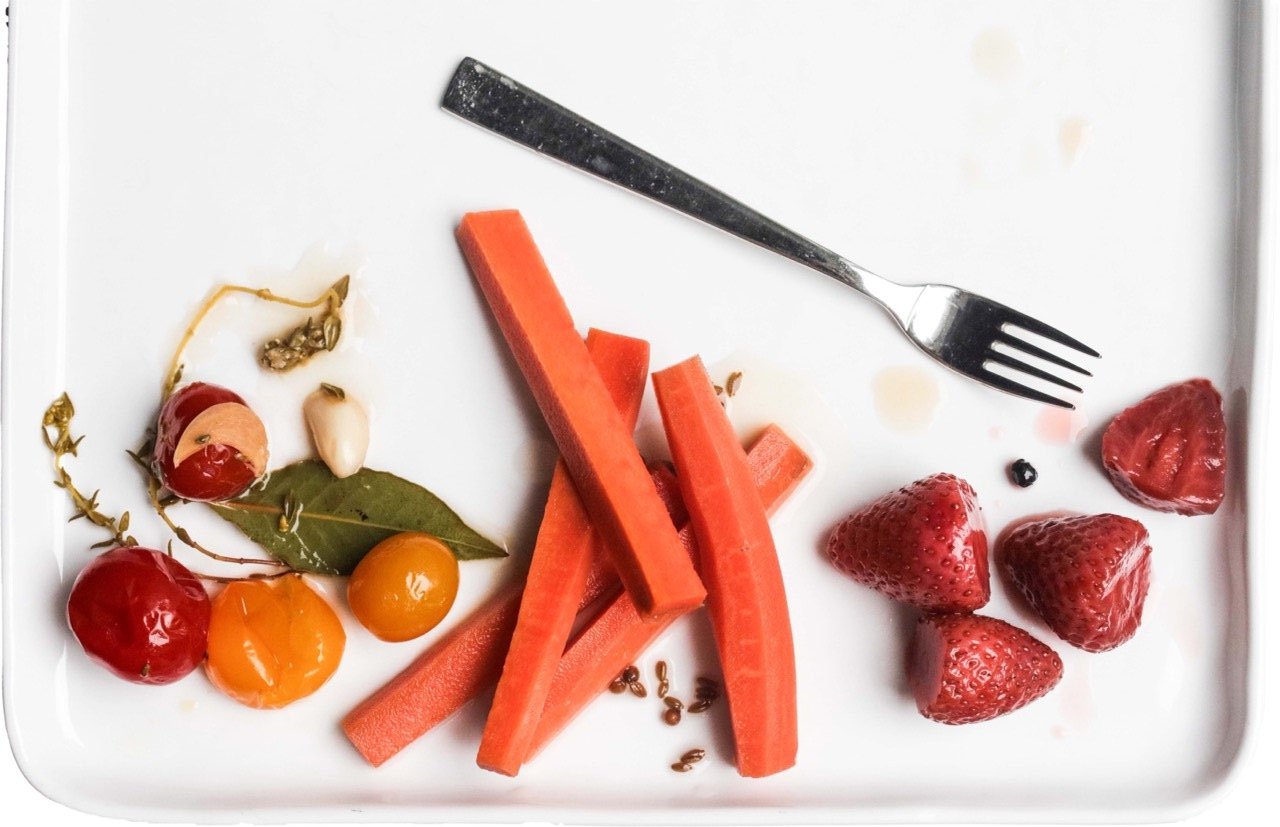Lightly-Fermented Refrigerator Pickles

With gardens and local markets giving up such wonderful bounty, you might be wondering what to do with so much produce. If you’re not a fan of cold-pack canning try this no heat, no vinegar method of preserving—the lightly-fermented refrigerator pickle.
Extend the life of vegetables and keep that fresh just-picked crunch. Keep this brine solution in your refrigerator and you can pickle almost anything that will have a crisp crunch for weeks.
Recipe for 5% Brine
6 tablespoons fine Sea Salt
8 cups of filtered water or spring water
Combine water and salt in a large glass beverage jar with a pour spout. Stir water until salt dissolves, and store in the refrigerator.
In glass jars, place any combination of cleaned and cut seasonal vegetables (cucumbers, beets, carrots, peppers, cabbage, etc). Add aromatics like garlic, onions, celery leaves, green onions, mustard seeds, and peppercorns. Add sprigs of herbs like dill, thyme, rosemary, or sage.
Tightly pack vegetables and herbs to leave as little space in the jar as possible. Add 5% brine until the water reaches the top of the jar. Cover the jar(s) with a dishtowel or cheese cloth and let sit on the counter, out of sunlight, overnight (best to find a place in the house that’s between 68-72 degrees).
In the morning press down lightly on the brined vegetables and notice very small bubbles rising from the bottom — this is the start of fermentation. At this point you can cover your jars and refrigerate to slow down fermentation. Or you can leave the jar(s) on the counter, out of sunlight, to continue until you get to your desired degree of fermentation. Open the jars an eat at will, keep refrigerated.
Experiment with this simple process and read up further on mastering fermentation from these experts.
Sandor Katz, Author and Educator
Wild Fermentation
Mary Karlin, Author
Mastering Fermentation
Julie publishes Edible Ohio Valley with her family. After 15 years in the world of commercial photography, her lens is now focused on recording the sustainability movement in the Midwest. A graduate of UC’s College of Design, Architecture, Art, and Planning, she’s a partner and co-founder of The Fairview Agency, a multidisciplinary creative firm.





